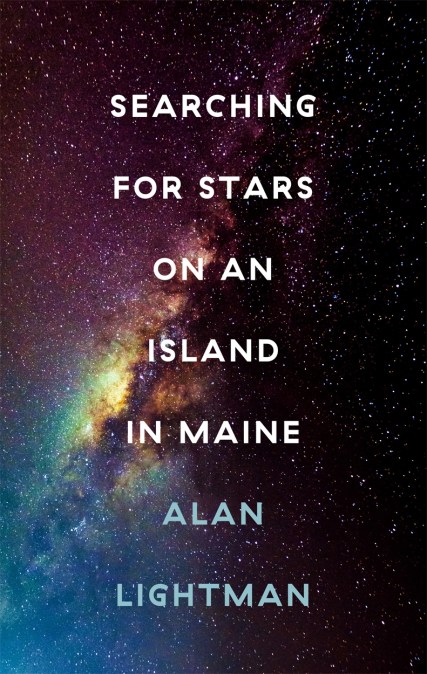As a physicist, Alan Lightman has always held a purely scientific view of the world. Even as a teenager, experimenting in his own laboratory, he was impressed by the logic and materiality of the universe, which is governed by a small number of disembodied forces and laws. Those laws decree that all things in the world are material and impermanent. But one summer evening, while looking at the stars from a small boat at sea, Lightman was overcome by the overwhelming sensation that he was merging with something larger than himself – a grand and eternal unity, a hint of something absolute and immaterial.
Searching for Stars on an Island in Maine is the result of these seemingly contradictory impulses, written as an extended meditation on an island in Maine, where Lightman and his wife spend their summers. Framing the dialogue between religion and science as a contrast between absolutes and relatives, Lightman explores our human quest for truth and meaning and the different methods of religion and science in that quest. Along the way, he draws from sources ranging from St. Augustine’s conception of absolute truth to Einstein’s relativity, from a belief in the divine and eternal nature of stars to their discovered materiality and mortality, from the unity of the once indivisible atom to the multiplicity of subatomic particles and the recent notion of multiple universes. What emerges is not only an understanding of the encounter between science and religion but also a profound exploration of the complexity of human existence.
Searching for Stars on an Island in Maine is the result of these seemingly contradictory impulses, written as an extended meditation on an island in Maine, where Lightman and his wife spend their summers. Framing the dialogue between religion and science as a contrast between absolutes and relatives, Lightman explores our human quest for truth and meaning and the different methods of religion and science in that quest. Along the way, he draws from sources ranging from St. Augustine’s conception of absolute truth to Einstein’s relativity, from a belief in the divine and eternal nature of stars to their discovered materiality and mortality, from the unity of the once indivisible atom to the multiplicity of subatomic particles and the recent notion of multiple universes. What emerges is not only an understanding of the encounter between science and religion but also a profound exploration of the complexity of human existence.
Newsletter Signup
By clicking ‘Sign Up,’ I acknowledge that I have read and agree to Hachette Book Group’s Privacy Policy and Terms of Use
Reviews
Searching for Stars on an Island in Maine demonstrates Lightman's ability to make the most abstract notions accessible to all. No background is needed in physics, philosophy, religion or any other field to fully understand every step of the wide-ranging intellectual trek. No matter who you are, you will emerge ready to be more impressive at your next dinner party . . . No matter your views on science and the transcendent, this engaging read will be as pleasant as a summer afternoon spent on an island in Maine with good company.
He's at his best describing the scientific process, able to evoke the thrill of new discovery while explaining dizzyingly complex theories.
A lyrical and illuminating inquiry into our dual impulse for belief in the unprovable and for trust in truth affirmed by physical evidence . . . emerging with that rare miracle of insight at the meeting point of the lucid and the luminous . . . Searching for Stars on an Island in Maine is a splendid read in its entirety.
Stimulating . . . Once again, this deft wordsmith has effortlessly straddled the divide between the hardest of the hard sciences and the nebulous world of existential doubts and longings.
The physicist and novelist's discursive essays on the mysteries of the physical world are full of wonder and insight . . . Lightman has a sympathetic gift for recreating the leaps of faith in scientific advance.

